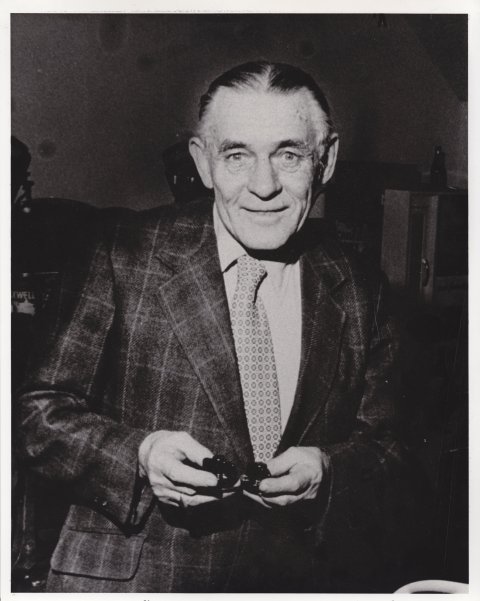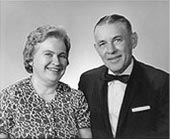 Born in Germany in 1900, Ernest B. Kuhn immigrated to Connecticut sometime before WWII, bringing his mother after he had settled. Later, he met and married Selina “Sally” Chapman, and they made their home in Meriden.
Born in Germany in 1900, Ernest B. Kuhn immigrated to Connecticut sometime before WWII, bringing his mother after he had settled. Later, he met and married Selina “Sally” Chapman, and they made their home in Meriden.
As his mother became older and more infirm, she could no longer be left alone. In an effort to be at home to care for her mother-in-law, Sally had opened a small daycare center, enrolling four children. Ernie himself became involved in the daycare center, building play structures for the children’s enjoyment. One day, Sally received a call from a woman who said her grandson “could not be handled. He would shut the world out.” Sally took in the child and gradually encouraged him to play with the other children. His behavior greatly improved over time, which impressed his grandfather, a past mayor of the town. He helped spread the word about his grandson’s improvement and Sally found her daycare services much in demand.
In the early 1960s, there were no vocational employment opportunities available to persons with disabilities. Once out of school, disabled persons most likely remained at home. Hundreds of individuals were housed in the Mansfield and Southbury Training Schools, both operated by the State of Connecticut. As a deacon of the Center Congregational Church, Ernie was asked to join a newly formed group called the Meriden Association for the Retarded, of which he later became president. After his mother died, they closed the daycare only to re-open a new center for older boys with disabilities in its place. “That’s when Ernie got really hooked,” Sally recalled. “He got three or four fellows started with simple jobs.”
 At this time our mission was set into action: To help people with disabilities realize their maximum potential by providing an opportunity to work. We have remained true to this for over 60 years.
At this time our mission was set into action: To help people with disabilities realize their maximum potential by providing an opportunity to work. We have remained true to this for over 60 years.
